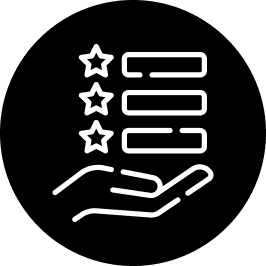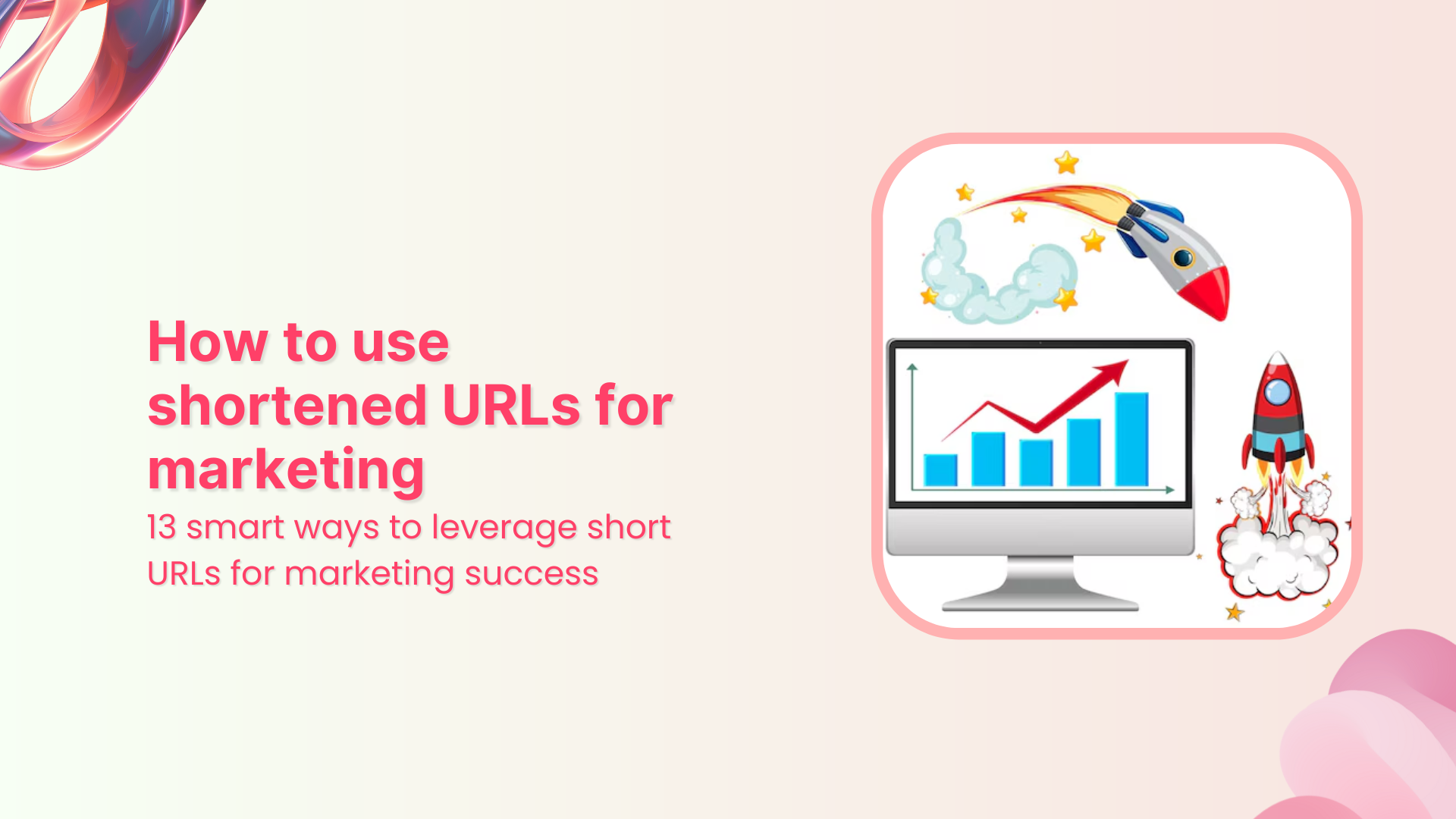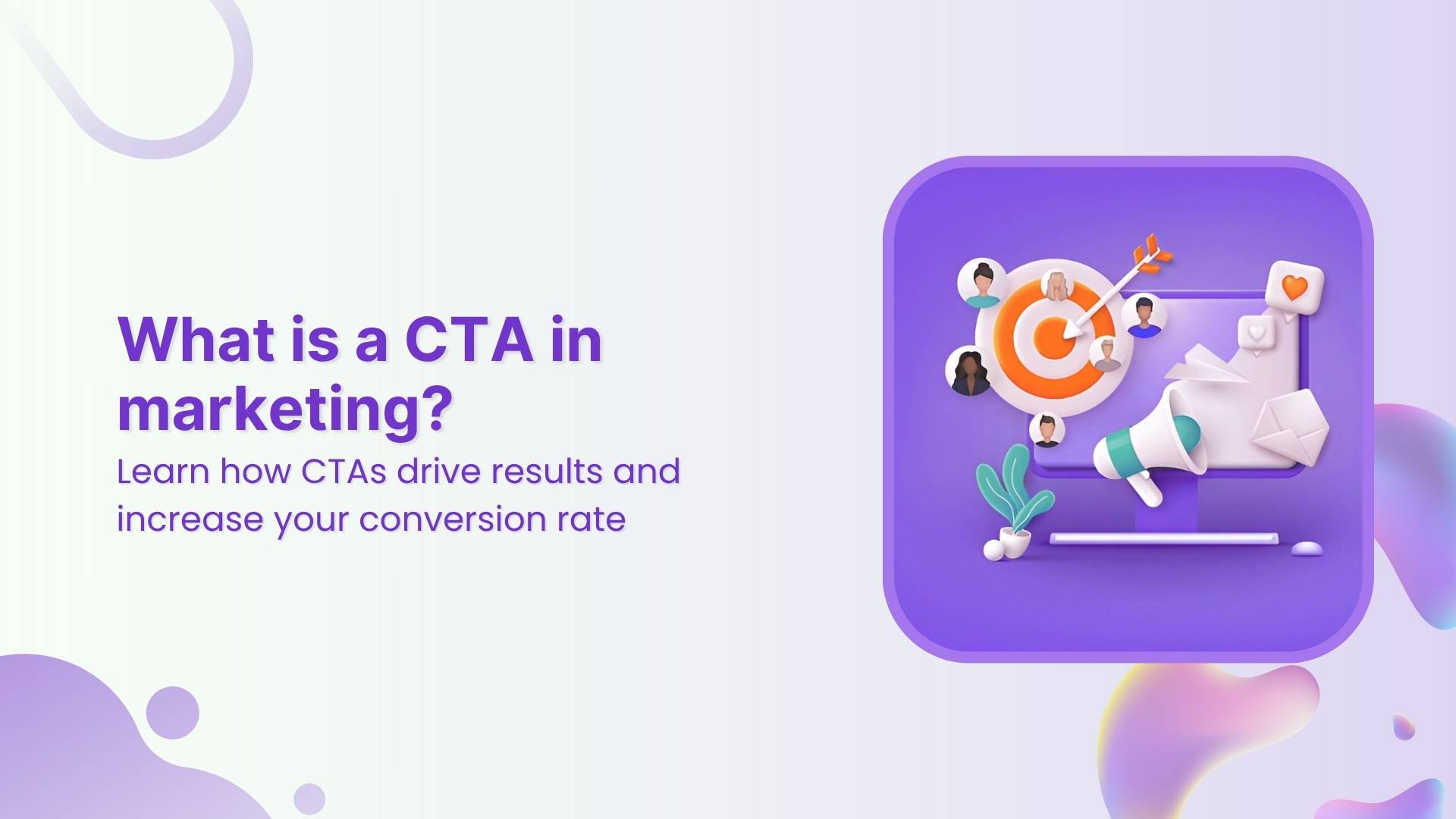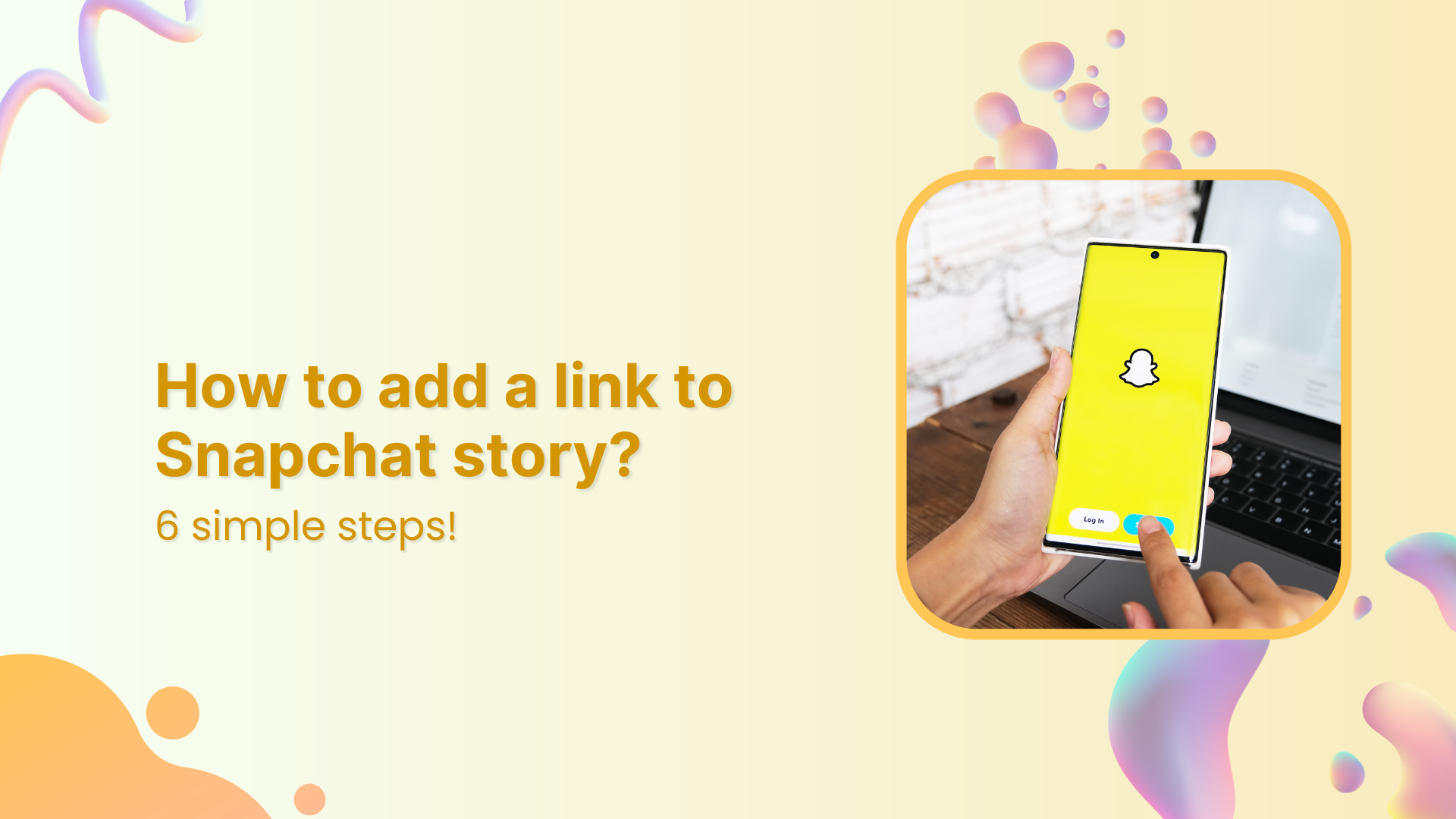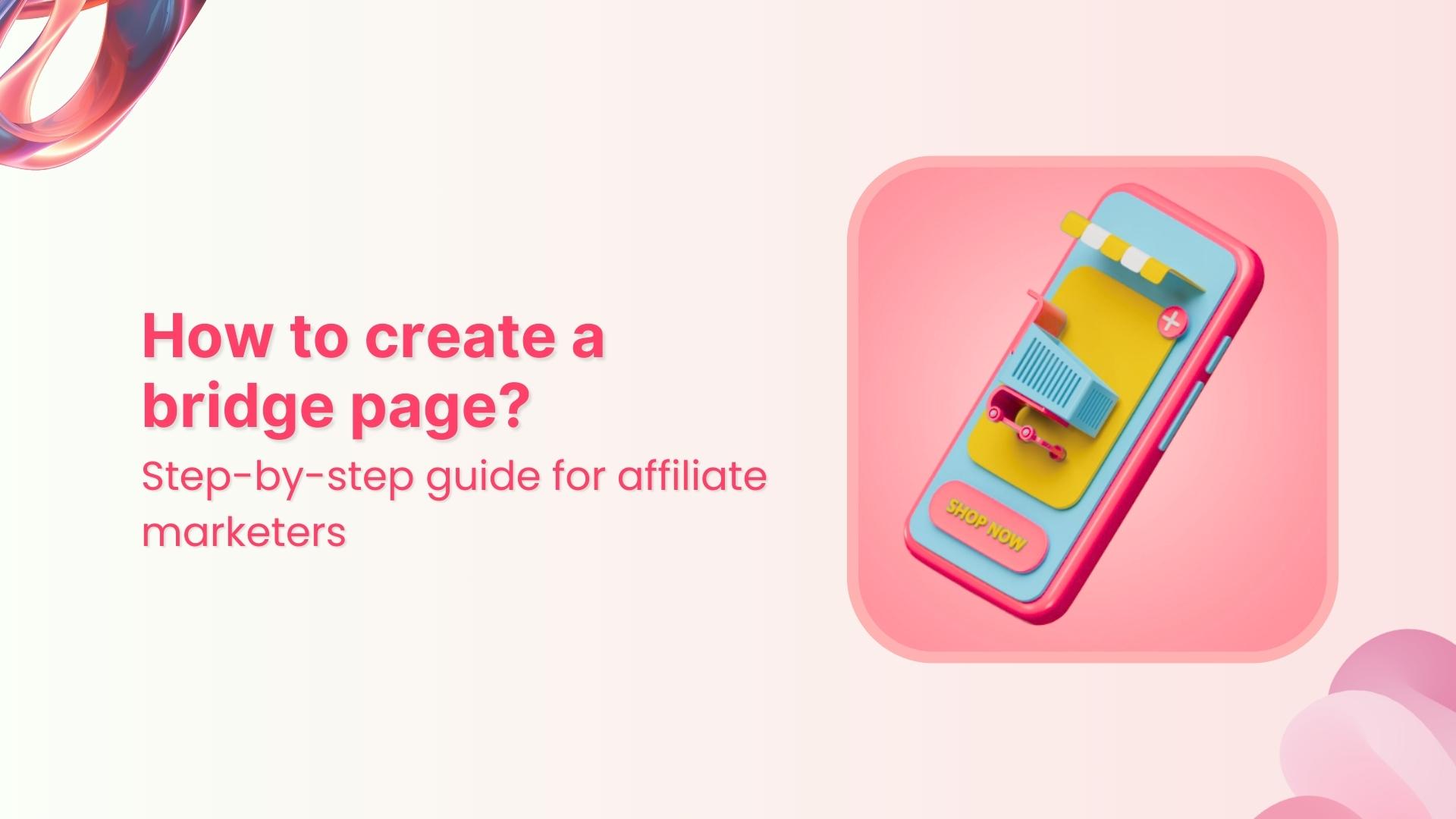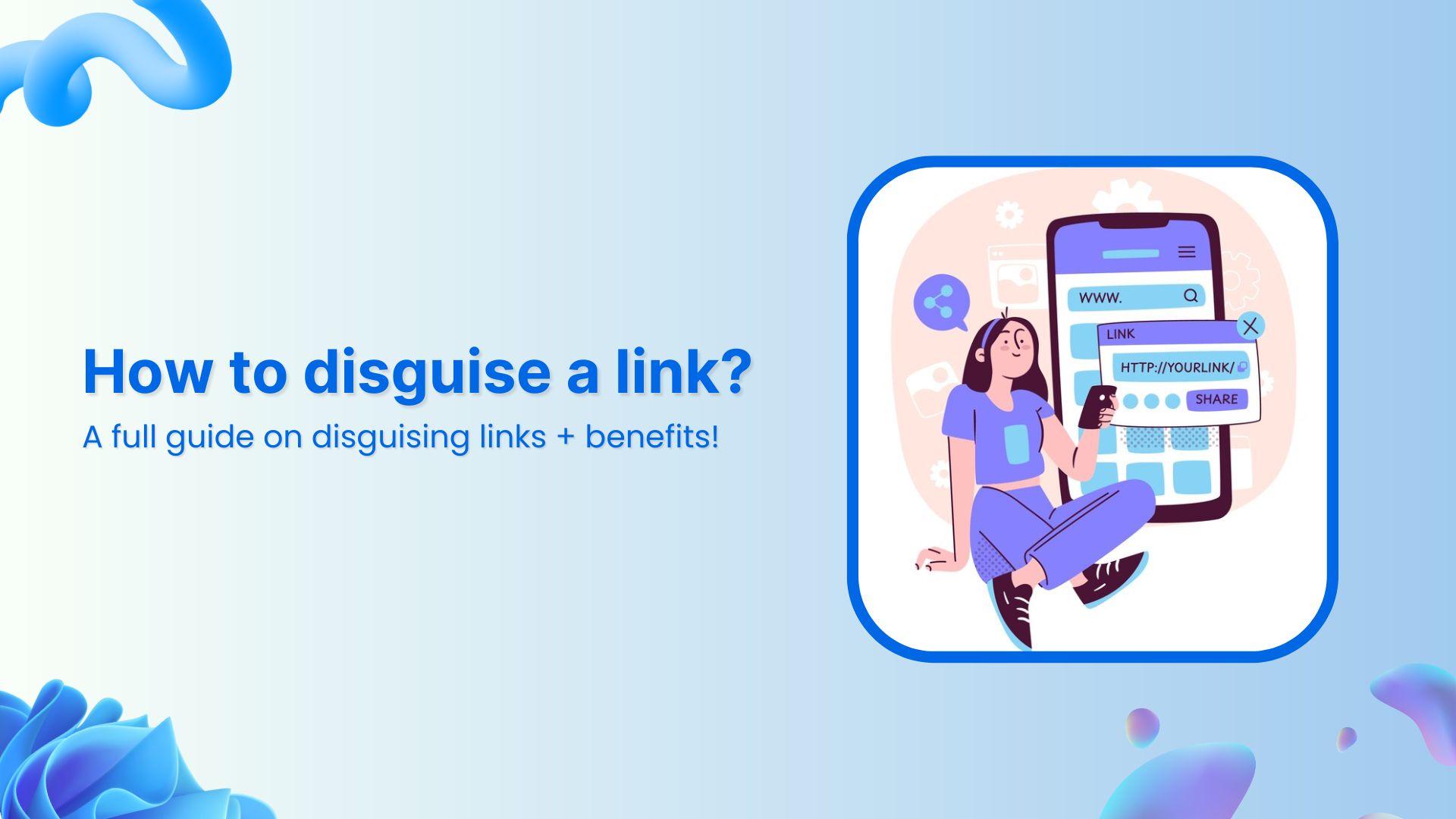Many people are understandably cautious about clicking links, whether due to irritating website pop-ups or emails from unknown sources.
At the same time, this hesitation poses a challenge for marketers, as getting users to click on URLs is vital for engagement and conversions.
This is where short URLs come into play. These attractive and concise links have become ubiquitous as influencers, brands, marketers, and bloggers leverage them to enhance marketing efforts, engagement, and click-through rates across various platforms.
Let’s explore the concept of shortened URLs and the possibilities of utilizing short, branded URLs to boost marketing campaigns.
What are short URLs?
Short URLs refer to shortened versions of long and clunky URLs that look spammy and suspicious, especially to new visitors.
Shortening URLs aims to improve marketing effectiveness by utilizing the available URL-shortening services.
To pull this off, brands, influencers, and experts use custom URL-shortening tools that convert long URLs containing multiple parameters and codes into short, sweet URLs.
We’d like to shed some light on some of the best URL shorteners on the market, but first, let’s discuss why short URLs are so important.
Why do short URLs matter?
As you probably know, SEO is a vital aspect of digital marketing, and it all comes down to URLs—whether we’re talking about backlinks or internal links. The way we structure our URLs has become a key topic in any SEO conversation.
According to Backlinko, the top Google result boasts an impressive click-through rate (CTR) of 27.6%.
Optimizing your site’s URLs is essential if you want to rank on the first page. They serve as a direct pathway to your destination, and their effectiveness is closely tied to redirection, branding, and overall accessibility.
Shortened URLs simplify the redirection process and enhance branding and accessibility. That’s why digital marketers, social media influencers, and major brands use them whenever they share links in emails or on social media.
By making links cleaner and more user-friendly, they significantly boost their chances of attracting clicks and driving traffic.
Shorten your links, amplify your brand.
Create shareable, trackable and fully customizable branded urls. Get more clicks with absolute link management features such as Bio Links, retargeting, deep Links, CTA’s and more.
Learn More!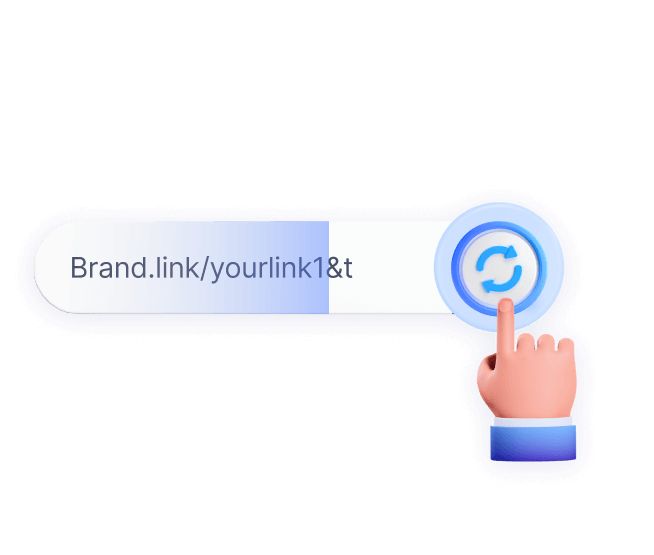
Four basic elements of URL shortening
To understand why companies and experts use short URLs, one must understand the four basic elements of URL shortening:
1. Appearance
Visual appeal is real in marketing, no matter the industry. Domains must be relevant, easy to read, and brandable.
Similarly, short URLs have a clean, sophisticated look that helps brands and individuals establish trust with the audience. Long and clunky URLs look fishy anyway.
2. Optimization
A fundamental element of using short URLs is optimization. Whether you’ve shortened the URLs for social media sharing or capitalized on a custom domain, the strategy is crucial in optimizing the URL structure.
Also Read: How to Shorten a link using a URL shortener?
3. Branding
Branding refers to highlighting the brand’s name, logo, colors, and URL everywhere the brand is mentioned.
Brands use relevant short domains for their social media marketing and email marketing campaigns; for instance, Replug allows users to add a custom domain to their accounts to create short, brandable URLs.
Also Read: Branded Links vs. Short Links: Which is Right for Your Brand?
4. Tracking
One of the most important elements of shortened URLs is trackability. Almost all major URL shorteners allow users to track the performance of short URLs, which enables users to understand the audience’s behavior toward their content.
These four elements explain why short URLs matter in marketing and why millions of brands, marketers, bloggers, and influencers prefer to shorten their URLs when sharing across different platforms.
13 smart ways to use shortened URLs to boost your marketing efforts
Short URLs are a great way to simplify marketing links. Let’s take a look at some of the best ways to boost marketing with shortened URLs:
1. Enhance branding with custom URLs
Branding is all about creating a strong identity for your business. This includes elements like your name, logo, color scheme, fonts, and design patterns. Companies and influencers carefully choose these aspects to ensure their marketing materials are consistent and recognizable, helping to boost brand awareness.
URL shorteners allow you to customize your shortened links, making them align with your brand’s name or theme. This helps maintain a cohesive look across your online presence. Shorter URLs are also easier to share and remember, providing a smoother experience for your audience, which can lead to higher engagement rates.
Also Read: Top 24 personal branding tools to upscale your marketing efforts
2. Easily shareable on social media
Share shortened URLs on social platforms to save character space and improve click-through rates, while maintaining a clean look.
Sharing links to blog posts, landing pages, and other resources is inevitable for engagement and conversion. However, the character limit on every social media platform hinders users from expressing their opinions in detail.
X (formerly Twitter) has a 280-character limit for free users and a 25,000-character limit for X Basic, Premium, and Premium+ users. Similarly, Instagram’s character limit allows users to write up to 2,200 characters in a post caption.
This is where short URLs come in handy and allow users to freely add shortened URLs to social media posts across different platforms.
For example, ContentStudio automatically shortens every URL a user adds to the Post Composer while publishing or scheduling content.
3. Track your marketing campaigns
Effective URL tracking shows you key metrics such as click-through rates (CTR), impressions, and total clicks. This capability significantly enhances the management and evaluation of marketing campaigns.
Shortened URLs play a vital role by enabling the tracking of user interactions and behaviors through a comprehensive analytics dashboard.
For instance, In email marketing, two critical engagement metrics are open rates and click-through rates. While most email marketing platforms provide analytics for these metrics, challenges can arise when multiple links are included in a single campaign.
This is where a reliable URL shortener becomes an invaluable tool for marketers and brands. By shortening multiple URLs for an email campaign, senders can easily track the performance of each email link using the URL shortener’s analytics dashboard.
For example, users can leverage a third-party URL shortener to condense various links within their email campaigns, simplifying performance tracking and enhancing overall campaign effectiveness.
4. Use customized CTAs for maximum impact
When CTAs are paired with short URLs, their effectiveness increases even more. Using URL shortening tools with a built-in custom CTA option maximizes the impact of your links. It combines the visual appeal of short URLs with the persuasive power of a personalized CTA, driving higher click-through rates and improving conversion outcomes.
Create compelling Call-to-Actions to boost conversions
Improve your click through rate by creating catchy CTAs for your marketing campaigns.
Get Started For Free!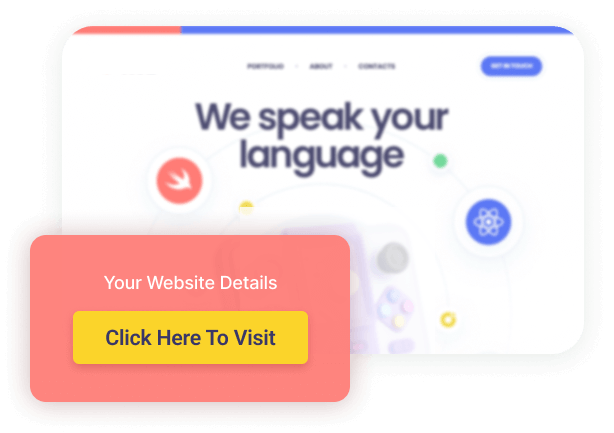
Call-to-actions (CTAs) direct visitors to the sales page or relevant pages. The idea is to provide the audience with the most relevant and appealing CTAs so that they become irresistible and encourage visitors to walk away without clicking on the link.
When perfect call-to-actions are mixed with short URLs, it gets even better. Since long URLs seem spammy and sluggish, visitors quickly act on short URLs. So, it’s safe to say that short URLs play a role in improving the efficiency of the call-to-actions. For added peace of mind, you can use a scam checker to evaluate suspicious short links or emails before clicking. Tools like Bitdefender Scamio help users spot scams in real-time.
5. Simplify offline campaigns
Offline marketing campaigns might seem like a thing of the past, but they remain a powerful tool for brands, organizations, and influencers to connect with audiences in the real world. Whether through branded merchandise, events, flyers, banners, or sponsorships, offline campaigns can leave a lasting impression.
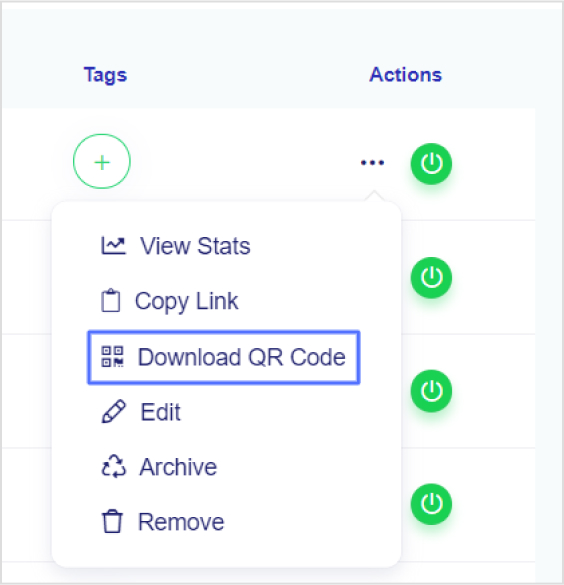
One of the best practices to enhance offline campaigns is by integrating QR code short links. These QR codes, when placed on T-shirts, flyers, or banners, allow people to scan and be instantly redirected to your online platform. Not only does this make it easier for potential customers to connect with your brand, but it also offers an efficient way to track engagement. By using a URL shortener with built-in QR code generation, you can create branded links and monitor how many people scanned the code. This helps in evaluating the performance of your offline marketing efforts.
Also Read: How to create a QR Code with short links?
6. Incorporate retargeting pixels
Use URL shortening tools that allow you to add retargeting pixels to your short links, enabling you to target users who click on your links with ads later.
Incorporating retargeting pixels into your URL shortening strategy is a game-changer for your marketing efforts. When you use URL shorteners that allow you to embed retargeting pixels, you can track user behavior after they click on your links. This means you can follow up with ads later, targeting those users who showed interest in your content but didn’t convert right away. By keeping your brand in their line of sight, you significantly increase the chances of bringing them back for a second look—and hopefully, a purchase!
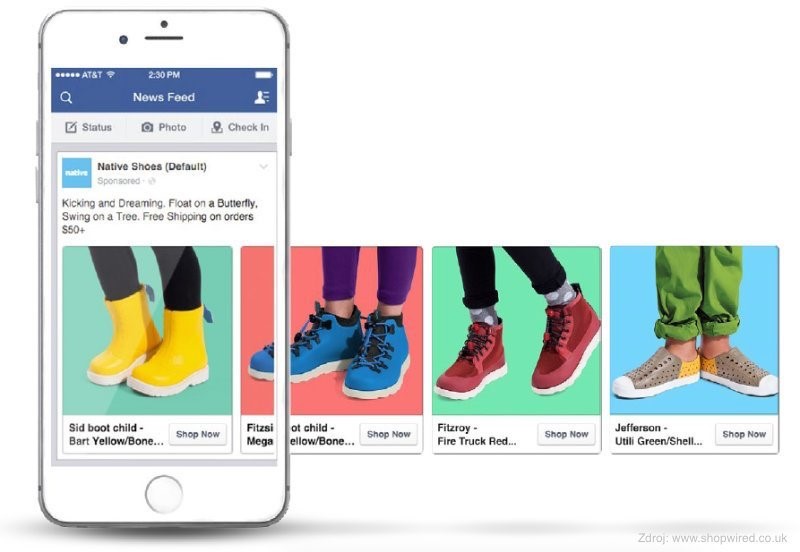
Let’s say you run an online clothing store and you share a short link to a seasonal sale on social media. By adding a retargeting pixel to that link, you can identify users who clicked on it but didn’t make a purchase. After they leave your website, you can serve them targeted ads featuring the same items they browsed or similar products while they’re visiting other sites. This strategy not only keeps your brand top-of-mind but also provides a gentle nudge to encourage those potential customers to return and complete their purchase. By leveraging retargeting pixels in your short links, you enhance your ability to convert casual visitors into loyal customers, making your marketing efforts more effective overall.
7. Boost your online presence with bio links
Look for a URL shortening tool that comes with a bio link feature. Bio links are game-changers for anyone active on social media. They let you bundle all your important links into one tidy URL, making it super easy for your followers to find what they need.
Tools like Replug let you craft a personalized landing page that showcases everything from your website and product pages to your various social media profiles. This means your audience won’t have to waste time hunting for your content—they can access it all in one place.
Convert your followers into customers with single bio link.
Uplift your conversion rates by connecting all of your social accounts and business pages with a single bio link.
Get Started For Free!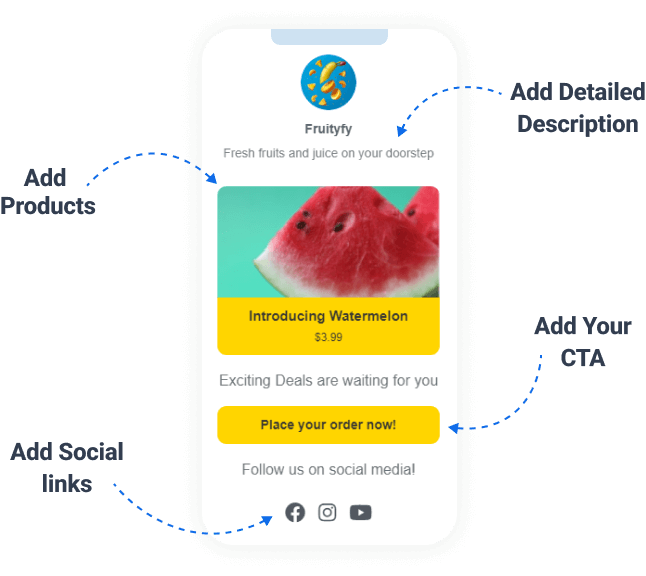
Also Read: 10 Best Bio Link Tools For 2024| Reviews & Pricing
8. Test link peformance
Test various versions of your short URLs to see which ones generate higher engagement and conversions.
A/B testing is a method for comparing two or more cases to see which one performs better. Usually, it’s case A versus case B to find out which outperforms the other.
Tools like Replug offer an A/B testing feature that helps marketers compare two or more URLs pointing to the same destination website to determine which gets more clicks and engagement.
Therefore, URLs can be shortened for A/B testing to see how the audience reacts to the short URLs compared to the original long URLs.
9. Transform user experience with deep links
Use deep links for seamless navigation
Trigger more clicks, conversions & app installations with fully customizable deep links.
Learn More!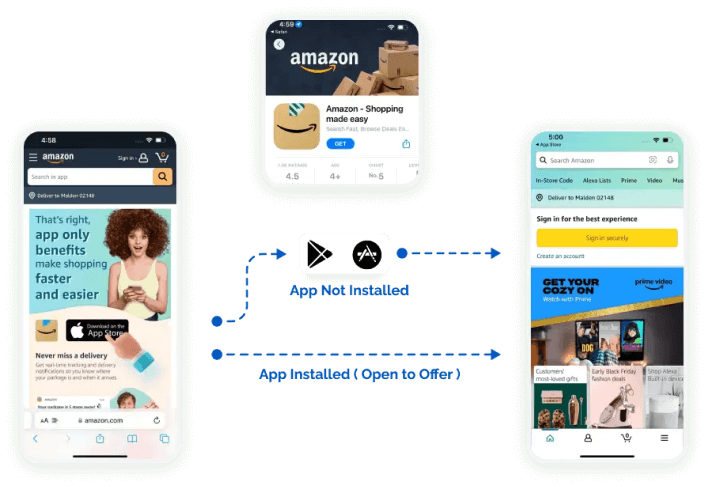
Advanced URL shorteners offer the feature of deep linking. Utilize short URLs with deep linking capabilities to direct users to specific pages within your app or website for a smoother user experience.
Directing users to specific content and streamlining their experience, you can increase engagement, improve conversion rates, and foster long-term loyalty.
For example, a fashion retailer promoting a new line of shoes through social media ads can use a short deep link that takes users directly to the new shoes collection page.
Additionally, if users do not have the app installed, deep links can trigger an installation prompt that directs them to the app store first. Once the app is installed, users can be taken directly to the specific product page, seamlessly integrating the installation process with the shopping experience.
This targeted approach not only enhances user satisfaction but also boosts eCommerce sales by making it easier for potential customers to browse and purchase products directly from the app.
Related: What are app deep links? Here’s why marketers love them!
10. Run limited-time offers via short links
Promoting limited-time offers through short links is a powerful way to enhance user engagement and grab your audience’s attention. Additionally, using temporary short URLs adds an exclusive touch to your promotions. These links can expire after a set period, emphasizing the urgency and encouraging faster decision-making from customers.
For example, offering a special discount for just 24 hours through a temporary short URL not only directs users to the deal but also reinforces the limited-time nature of the offer. This strategy effectively boosts engagement and conversions while allowing you to track the success of your campaign.
11. Simplify affiliate and influencer campaigns
Using short links in affiliate and influencer marketing is a smart way to streamline tracking and improve campaign management. With a simple, branded short URL, affiliates and influencers can easily share links with their audiences, increasing the chances of clicks.
These short links allow for precise tracking, enabling you to monitor referral traffic, conversions, and the effectiveness of each partner’s efforts while ensuring affiliates receive proper credit for their commissions. Additionally, URL shortening helps mask or disguise long affiliate links, and protect affiliates from commission theft.
12. Personalized targetting with dynamic short URLs
A quick way to enhance your marketing with URL shortening is by setting up dynamic short URLs that allow for link rotation and traffic routing. These URLs can automatically direct users to different destinations based on factors like location, device, or browser type.
This personalization ensures users are directed to content tailored specifically to them, increasing engagement and satisfaction.
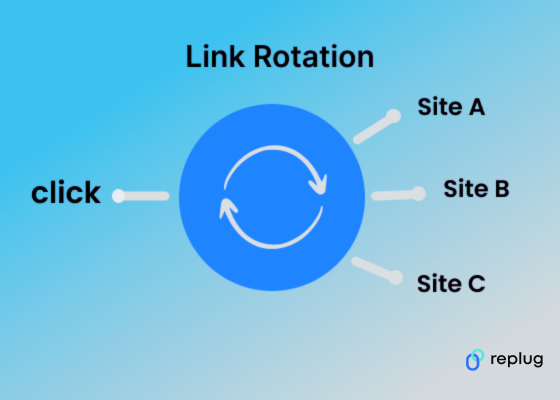
For instance, you can create geo-targeted short URLs that redirect users to landing pages or offers customized for their region, making your promotions more relevant and appealing.
This ensures your promotions resonate with local audiences and users receive the most optimized experience for their location, improving the chances of conversion and making your campaigns more effective.
Routing traffic based on user location, device, or other factors, helps to optimize user experience and ensure the right traffic reaches the most suitable content, boosting conversion rates and campaign performance.
Related: Why & When To Rotate Links?
13. Promote discounts and special offers
Create and share short URLs that lead to promotional pages, making it easier for users to engage with your offers quickly. Moreover, promote contests, giveaways, or sweepstakes using short URLs to make it easy for users to participate.
These are just a few of the many effective strategies available to maximize the potential of shortened URLs across various marketing channels and boost engagement across different platforms.
Which is the best URL shortener for online marketing?
Replug is an all-in-one link management tool for brands, marketers, SEOs, and bloggers to create, manage, and analyze short URLs. It’s a complete URL shortening tool that offers several link management services to take your social media marketing to the next level.
Over 35,000 happy customers worldwide trust Replug. One reason for its success is that it offers much more than the average URL shortener on the market.
Users find URL shortening, tracking, bio links, and much more under the same umbrella. It’s, without a doubt, the best URL shortener for social media marketers.
Moreover, Replug offers a 14-day free trial with no strings attached. Try it out—no credit card is required.
Link Management Made Easy
Your go to link management tool for CTAs, branded and bio links, QR Codes, tracking and retargeting.
Get Started for FREE!
Key features
- URL shortening for shortening long URLs
- Custom domain configuration for branded short URLs
- Bio link tool to create social media bio links
- Retargeting feature to facilitate retargeting on social media platforms
- A/B testing URLs to compare URL performance
- Link rotator to rotate links for testing purposes
- White-labeling for large-scale organizations
- URL analytics to track and monitor URL performance
- QR code management for links
- Customizable call-to-actions
Pricing
- Basic: $19
- Professional: $49
- Agency: $79
Wrapping up
Short URLs have become an integral part of modern-day marketing campaigns. Brands, influencers, and marketers try to squeeze every opportunity to drive visitors, engage followers, and upsell existing customers.
The concept behind discussing different ways to boost marketing with short URLs is to give readers some perspective on the marketing opportunities available to everyone. However, most people are too lazy to try out new things.
Undoubtedly, brands, marketers, and influencers capitalize on short branded URLs on social media and other channels. It’s time to take short URLs seriously before it’s too late.
Get started with your URL shortening and start analyzing every click you get through social media, email marketing, or other marketing channel. Sign up for a free Replug account now!
FAQs about marketing with shortened URLs
Let’s take a look at some of the burning questions about short URLs:
What is a short URL used for?
A short URL can be used for different purposes, such as trimming a long, clunky URL and converting it into a short, sweet URL. Social media users can use a short link in their bio. Bloggers also shorten their affiliate links to make those links look good. Furthermore, a short URL can be used to track clicks. There are several uses of short URLs in the digital marketing field.
How do I shorten a URL?
All you need to do is sign up for a URL shortener and log in to your account. Paste the long URL in the shortener area, and the long, spammy-looking URL will be converted into a short, clean URL.
How to create a custom URL link?
To create a custom URL link, one must set up a custom domain in the URL shortener. Many URL shorteners don’t provide this facility. Replug is one of the best URL shorteners on the market; it allows users to add a custom domain to the account and create custom short URLs with case.
Where can you use shortened URLs?
Shortened URLs are used on different platforms. For instance, social media marketers use short links when publishing content on social media platforms; email marketers use short URLs in the email body to track clickability; influencers use sponsored content to track engagement, etc. So, there are multiple use cases of short URLs.
How do I know if a short URL is safe?
No right or wrong way of analyzing whether a short URL is safe exists. However, experts recommend clicking on short URLs from trusted sources. Spammers and hackers can also use popular URL-shortening services to send malicious content or initiate phishing activity.



















